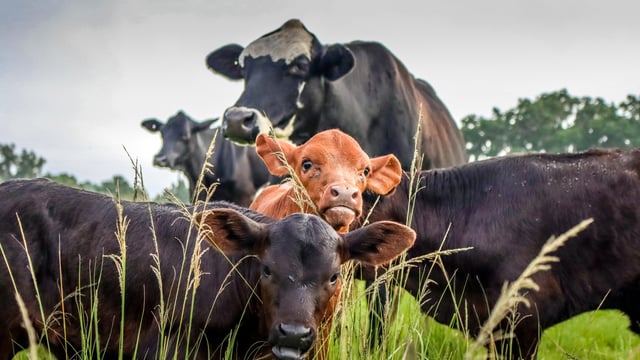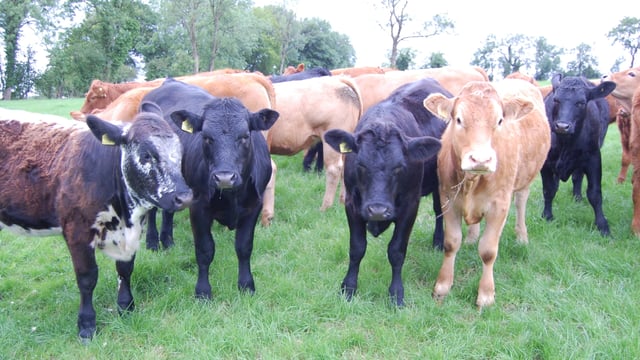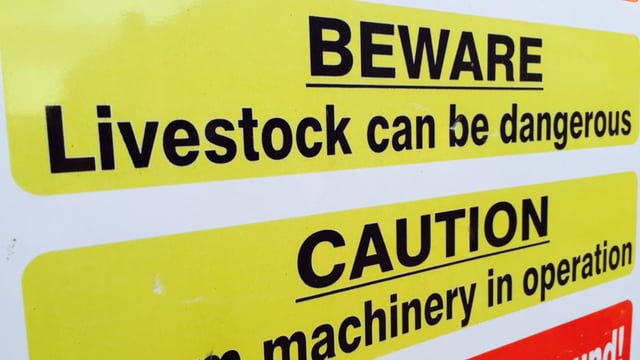'Clear need' to extend short-term injury and illness benefits to farmers - ICMSA
There is a "clear need" to extend short-term benefits to the self-employed, including farmers, the Irish Creamery Milk Suppliers' Association (ICMSA) has said.
The chairperson of ICMSA’s farm business committee, Pat O’Brien spoke to Agriland about the PRSI benefits available to self-employed people like farmers.
Eligibility for these depends on a person’s PRSI record and class.
In general, self-employed people, including farmers, make PRSI contributions at class S, which does not provide entitlement to Illness Benefit or Injury Benefit.
Support for long-term incapacitation for the self-employed was introduced in 2017. However, the ICMSA said that the lack of support for short-term illness and injury is a major concern.
O'Brien said: “Unfortunately, farming is a dangerous occupation – a fact that we are working hard to change.
"But that’s the present reality and the implications of an injury to a farmer who, in most cases, is the only person working on the farm, is absolutely huge from a personal, farm management, and financial perspective.
"The current PRSI regime does not provide any support to the self-employed for short-term periods when the person cannot work."
The ICMSA said that as part of its pre-Budget 2026 submission, it is proposing that the self-employed should qualify for Occupational Benefit under PRSI.
"That would mean that in the event of the farmer being unable to work for a period, that he or she would be in a position to get appropriate help on the farm and, critically, remove some of the chronic financial stress associated with a farm accident," O'Brien added.
Changes to Illness Benefit
A Department of Social Protection spokesperson has explained that the only benefits that class S PRSI does not provide access to are Health and Safety Benefit, Illness Benefit, and Occupational Injuries Benefits.
The spokesperson said: "Illness Benefit is the primary short-term income support provided by this department to those who are unable to work due to illness of any type and who are covered by social insurance.
"The person must have made the required number of contributions under class A, E, H, or P to qualify."
The programme for government includes an action to explore the option of giving self-employed workers access to Illness Benefit by means of making a higher PRSI contribution.
The department has confirmed to Agriland that it has "commenced work in this regard".
"Any changes to the current system would need to be considered in an overall policy and budgetary context," the spokesperson said.
Injury
Injury Benefit is available under the Occupational Injuries Scheme.
It is a weekly payment made to an insured person if "they are unfit for work either due to an accident arising out of and in the course of employment or due to the contraction of a prescribed disease due to the type of work they do".
Funded by the Social Insurance Fund through the payment of PRSI contributions, to be eligible, a person must be in employment insurable at PRSI class A, D, J, or M along with meeting all other conditions of the scheme.
"Self-employed people pay contributions to the Social Insurance Fund at a lower rate of 4.1%," the spokesperson told Agriland.
"This is 11.15 percentage points lower than the combined employer and employee contribution of 15.25% made in respect of employed contributors.
"However, self-employed contributors do have access to over 90% of benefits available to employed contributors."
These include:
- Adoptive Benefit;
- Benefit Payment for 65-year-olds;
- Carer’s Benefit;
- Guardian's Payment (Contributory);
- Invalidity Pension;
- Jobseeker's Benefit (Self-Employed);
- Maternity Benefit;
- Parent's Benefit;
- Partial Capacity Benefit (where in receipt of Invalidity Pension);
- Paternity Benefit;
- State Pension (Contributory);
- Treatment Benefit; and
- Widows, Widower's, or Surviving Civil Partner's (Contributory) Pension.
In 2017, Invalidity Pension was extended to the self-employed.
This is a weekly payment to people who cannot work because of a long-term illness or disability and who are covered by PRSI contributions.
"To qualify, the person must have been incapable of work for at least 12 months and be likely to be incapable of work for at least another 12 months; or must be permanently incapable of work," the department spokesperson said.
"Eligibility for Invalidity Pension depends on the person’s PRSI record and class. People must have made the required number of contributions in Class A, E, H or S to qualify."
In circumstances where people are ill but do not qualify for Illness Benefit or Invalidity Pension, the department said it provides means-tested supports under the Disability Allowance scheme and the Supplementary Welfare Allowance scheme.
"An Additional Needs Payment may also be available to people who have expenses that they cannot pay from their weekly income," the spokesperson said.











